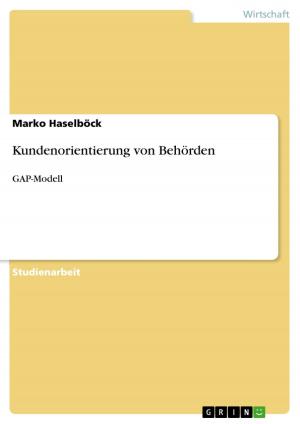H. P. Lovecraft and the Literature of the Fantastic: Explorations in a Literary Genre
Nonfiction, Entertainment, Drama, Anthologies| Author: | Bernd Steiner | ISBN: | 9783638616171 |
| Publisher: | GRIN Verlag | Publication: | March 19, 2007 |
| Imprint: | GRIN Verlag | Language: | English |
| Author: | Bernd Steiner |
| ISBN: | 9783638616171 |
| Publisher: | GRIN Verlag |
| Publication: | March 19, 2007 |
| Imprint: | GRIN Verlag |
| Language: | English |
Examination Thesis from the year 2005 in the subject American Studies - Literature, grade: 1,0, Catholic University Eichstätt-Ingolstadt, 57 entries in the bibliography, language: English, abstract: As the title suggests, this paper aims at pointing out the major characteristics of the literature of the fantastic and combining this theoretical approach with a study of the work of one of the most significant representatives of said genre, the American writer Howard Phillips Lovecraft (1890-1937). Consequently, the first major part of this paper is dedicated to a brief study of the genre of fantastic literature in general, particularly the very problematic task of defining its distinctive characteristics. By looking at the fantastic tradition in America (particularly that of New England), including the prevalent features and themes marking the American variety of the fantastic, and highlighting the contribution some eminent American authors have made to the genre, the second part then focuses on the fantastic in American literature. Finally, the third major section of this paper provides a detailed study of the life and work of one of the chief American writers of fantastic prose fiction, H. P. Lovecraft. After an account of Lovecraft's life and personality (including some of the countless misconceptions circulating since his death), a critical evaluation of his literary achievement and influences, and a short discussion of his impact on modern popular culture, a large part of this section is dedicated to a thorough analysis of his unique concept of fantastic fiction: while certain aspects of his work inevitably link him to his literary precursors, there are others clearly setting him apart from any writer of the fantastic that came before him. The paper is concluded by brief case studies of three of Lovecraft's most popular short stories.
Examination Thesis from the year 2005 in the subject American Studies - Literature, grade: 1,0, Catholic University Eichstätt-Ingolstadt, 57 entries in the bibliography, language: English, abstract: As the title suggests, this paper aims at pointing out the major characteristics of the literature of the fantastic and combining this theoretical approach with a study of the work of one of the most significant representatives of said genre, the American writer Howard Phillips Lovecraft (1890-1937). Consequently, the first major part of this paper is dedicated to a brief study of the genre of fantastic literature in general, particularly the very problematic task of defining its distinctive characteristics. By looking at the fantastic tradition in America (particularly that of New England), including the prevalent features and themes marking the American variety of the fantastic, and highlighting the contribution some eminent American authors have made to the genre, the second part then focuses on the fantastic in American literature. Finally, the third major section of this paper provides a detailed study of the life and work of one of the chief American writers of fantastic prose fiction, H. P. Lovecraft. After an account of Lovecraft's life and personality (including some of the countless misconceptions circulating since his death), a critical evaluation of his literary achievement and influences, and a short discussion of his impact on modern popular culture, a large part of this section is dedicated to a thorough analysis of his unique concept of fantastic fiction: while certain aspects of his work inevitably link him to his literary precursors, there are others clearly setting him apart from any writer of the fantastic that came before him. The paper is concluded by brief case studies of three of Lovecraft's most popular short stories.















